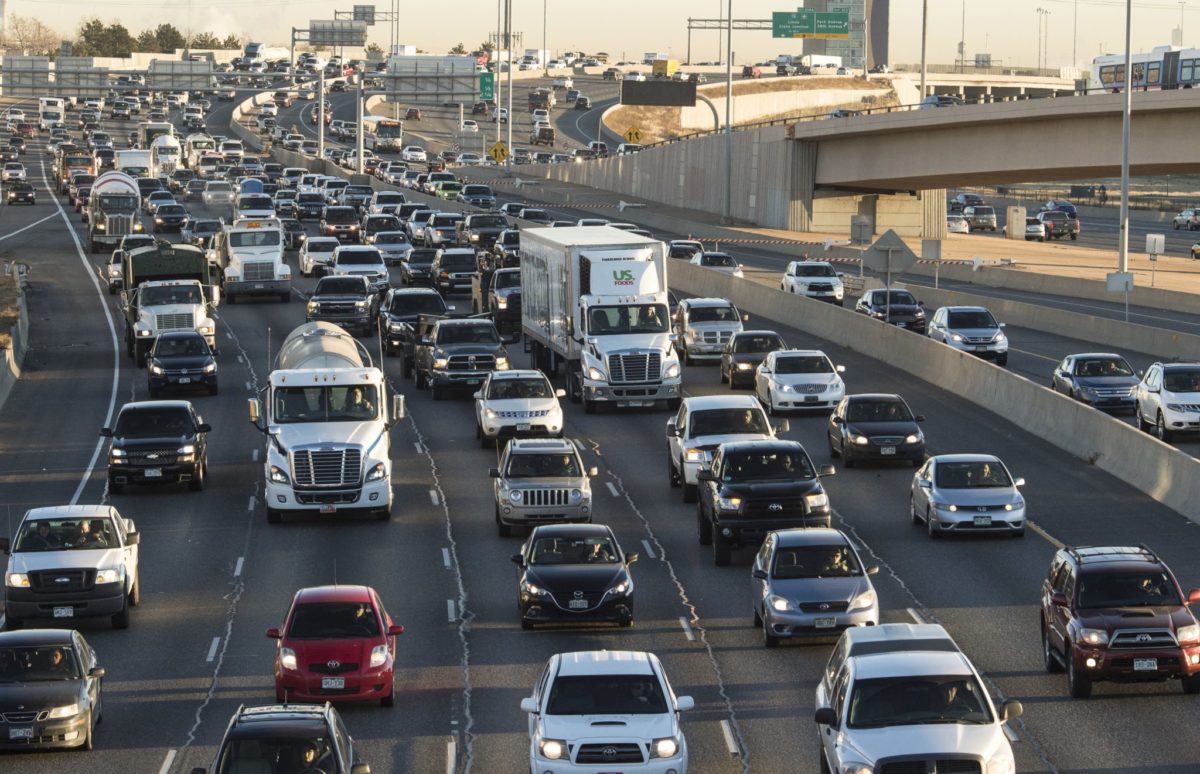The Trump administration last week issued a proposal to significantly scale back the nation’s fuel efficiency and greenhouse gas targets for cars and light trucks, and take away authority from 14 states that follow California’s stricter tailpipe emission rules. The U.S. Environmental Protection Agency proposal freezes the standards at the 2020 level through 2025, so the fleet average for cars and light trucks would top out at an average 37 miles per gallon instead of 54.5 in the current standard.
The administration also seeks to take away California and other states’ authority to implement more stringent standards. The Clean Air Act gives states the right to protect their residents from vehicle pollution. Thirteen states, the District of Columbia, and soon Colorado—representing 118 million Americans—have exercised their right to clean air with clean car standards.
“Colorado air already challenged by heat, wildfires, congestion. Why make worse? Why roll back emission standards? Truth: in end will cost drivers more AND make air quality worse. We will stick with cleaner, less expensive standards!” Colorado Governor John Hickenlooper on Twitter
The proposal goes far beyond the demands of auto companies. Ford Chairman Bill Ford said in May, “We want California at the table, and we want one national standard that includes California, and we’ve been very clear on that.” California, together with 17 other states, environmental NGOs, and a coalition of businesses (mostly electric utilities and Tesla) have filed lawsuits to protect strong standards. A new court case could last from two to five years, creating a lack of clarity around the regulations—a major challenge when companies try to decide where to allocate investments. The weakened standards could cost the jobs of 288,000 people who make components to increase fuel efficiency, according to BlueGreen Alliance estimates, and a new motor vehicle supplier group—the Automotive Technology Leadership Group (ATLG)—warns that protracted litigation on this issue would create regulatory uncertainty, chilling investment and jobs in the U.S. The proposal also puts U.S. automakers behind in an emerging global market for cleaner cars. And Consumer Reports estimates such a rollback will cost consumers up to $100 billion more to keep their gas tanks full.
“Today’s decision will mean small business owners paying more to transport their goods and get to job sites and families paying more to drive to work or their child’s school. This decision flies in the face of what’s best for consumers and the environment. The EPA’s action to weaken fuel economy standards hurts Pennsylvania’s consumers, workers, and everyone who wants to breathe cleaner air.” – Pennsylvania Governor Tom Wolf
The administration’s proposal will now be open for a 60-day public comment period. Advocates will join governors, attorneys general, and others in providing data and testimony on the benefits of strong standards.
Patricia Monahan, Program Director, Transportation
Photo credit: Dennis Schroeder/NREL
